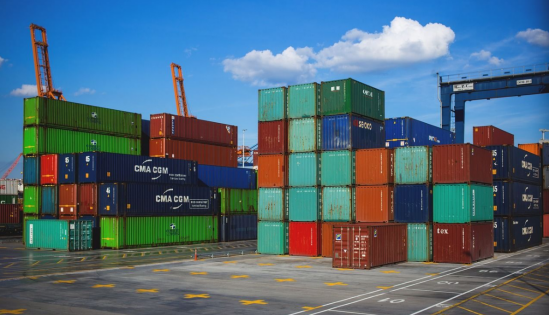
The meaning of dumping container
Dumping is a very popular term in the import and export, shipping logistics and other industries. In the peak season of shipping, due to the large volume of goods, limited space, shipping companies to ensure that the ship can be fully loaded, often start to confirm that more than 120% of the full load of goods can be transported on time. And once there is not enough space, that is, the shipping industry so-called "burst cabin", the shipping company will refuse the excess of about 20% of those lower freight, and its relationship with the average shipper's goods loaded, these goods will be left behind to the next or several voyages, and the shipping company is not responsible for this.
The "dumping container" is a very common industry expression, "cabinet" is the container, that is, container container. mainly refers to the shipping container, including the dumping of the whole container and the dumping of the LCL container.
Difference between full container dumping and LCL dumping:
Full container dumping is a frequent occurrence during peak season.
The whole container dumping refers to your all aspects are no problem, completely catch up with the ship, only due to the shipping company unilateral reasons. The main reason is: the ship in berth at various ports, there will always be some goods because of delays or not timely customs clearance and other reasons to catch up with the ship, resulting in the cabin loading rate is not high. Therefore, in order to ensure the full load, the shipping company will always release more space than the actual space. If the last are not canceled or canceled not much, which is the burst cabin, the extra will be your cabinet dumped.
But the LCL rarely happens, because the LCL freight forwarding company is generally stronger, and the shipping company relationship is better, and the LCL involves multiple customers, multiple tickets, the impact is greater, so the LCL freight forwarder will find ways to avoid dumping, unless catch up with the customs inspection, really can not catch the ship, that can only delay the next voyage.
However, delaying the ship is not the same as dumping the container
Dumping refers to your all aspects of no problem, completely catch up with the ship, only due to the shipping company's unilateral reasons (more than the actual number of cabins), burst cabin no cabin, so directly dump your cabinets. And delayed ship, generally due to the reasons of the freight forwarder or shipper, really can not catch up, so had to delay to the next voyage.
How to operate after "dumping"?
For dumping, although the probability is caused by the shipping company, but the shipping company bill of lading has a disclaimer, and does not constitute a breach of contract, so the shipping company is not responsible for this, the cargo owner may also pay an extra fee for the detention of goods. The container can be loaded on the ship is always decided by the shipping company.
1. Missed loading
It refers to the goods have entered the port and finished the customs declaration, when loading the container by the shipping company, do not need a separate customs declaration and inspection, because this is already released by the customs cabinet, because the shipping company did not on board, the shipping company will arrange on another ship or delayed to the next voyage out, in the middle do not need a second customs declaration. This is the so-called "missed loading". "In this case, as long as your freight forwarder to produce the relevant costs in a timely manner to the shipping company to apply for remission on the line.
2. Return to customs and reapply
But if you can't apply to the shipping company for omission, or due to other reasons customs do not agree to do omission, you need to use the shipping company's new space, new ship name, voyage, new bill of lading number, let the customs broker to customs for withdrawal procedures, entrust the fleet to the shipping agent / shipping company for the transfer of boxes and pay the relevant fees (change with transfer fees and operating costs).
What are the charges for being dumped and by whom?
1.Change order fee - due to the reason of shipping line dumping, generally can apply for reduction or exemption.
2.Demurrage charge - due to the reason of shipping company dumping, generally can apply for reduction or exemption.
3.Ocean freight difference - due to shipping company dumping, generally most shipping companies do not change. However, there are some individual shipowners use the date of departure as the basis for calculating ocean freight. Usually shipments in the middle or end of the month encounter dumping containers, easy to slip into the next billing period, may encounter the risk of rising sea freight. It is necessary for the shipping cost paying party to bear by itself.
4.Transfer fee - due to the shipping company dumping container reasons, generally by the shipping company unified transfer, generally can also apply for relief. If the shipping company is not responsible for the transfer, it will not be reduced.
Written by Vivi
